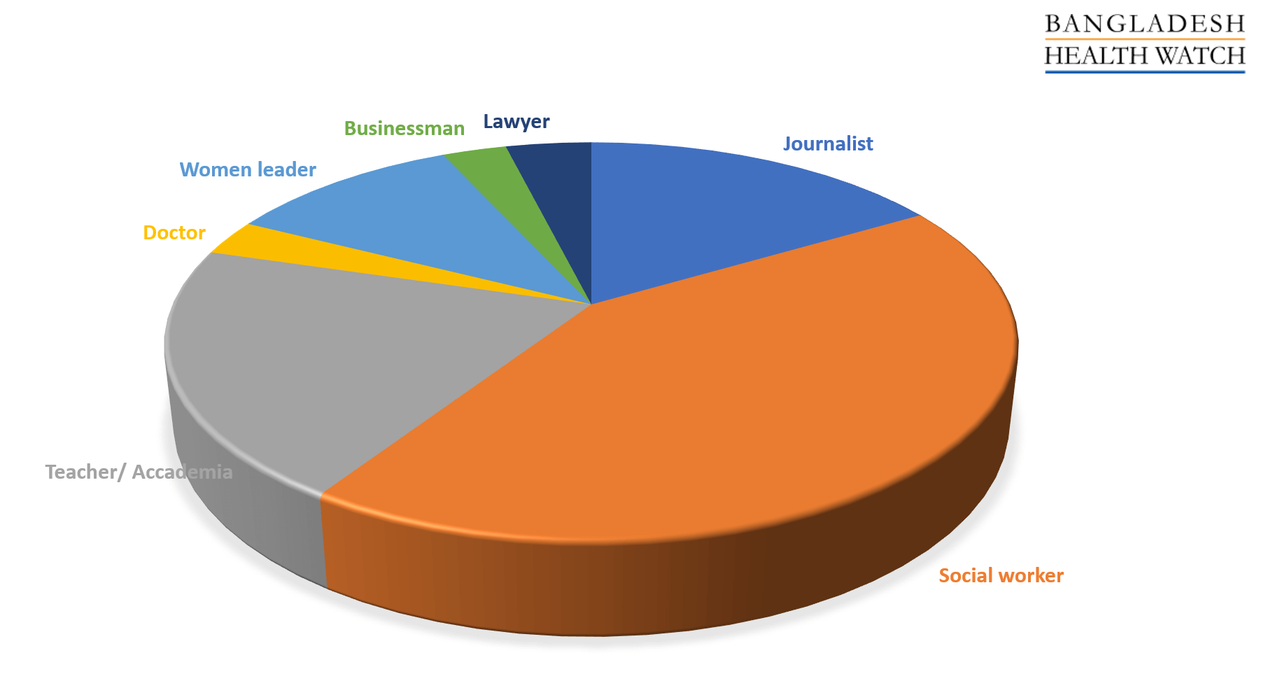Health Rights Forums are formed with civil society activists and citizens who are interested to play an active role voluntarily in improving the quality of health services at the local level. The Forum acts as a robust, effective, and sustainable citizen's platform to work as a watchdog body. There are two Health Rights Forums with civil society members at each Regional Chapter, i.e., District Health Rights Forum (DHRF) and Upazila Health Rights Forum (UHRF). Some district forum decided to form Union Forum also.
The person who meets the following criteria will be a member of the Regional Chapter:

HRF is principally responsible to carry out advocacy issues at the district level with secretarial support from the Host Organisation. This HRF acts as a steward of other civil society and youth forums active in district, upazila and union levels. It adopts an upazila for working area. Similarly, Upazila Forum selects a union where the forum works with one or two Community Clinics.
As a civil society platform, District and Upazila HRFs work with selected government health service providing institutions like District General Hospital, Upazila Health Complex and one or two Community Clinics at the union level. District Forum is based at the district level and visits the adopted institutions at upazila and union levels regularly. HRFs get support from Health Rights Youth Forum to collect feedback from the users, collate the feedback and do necessary advocacy.
| Organisational Function | Each forum arranges meetings considering the need and availability of the members. Member-Secretary calls the meeting after getting the permission from the Chairperson. The Chairperson presides the meeting. Members approve its activity plan and review progress in this meeting. |
| Advocacy | Health Rights Forums do local level advocacy with the selected health institutions based on their observation, information, user feedback and experience to ensure better and equitable health care service, improve transparency, accountability, and peoples' participation in government health institution. |
| Campaign | Forums arranges different campaign activities to make mass people aware about their health rights and entitlements. As part of mass campaign, a forum can arrange rally, mass gathering, press briefing, local level planning meeting, round table meeting, seminar, distribution of Information Education and Communication (IEC) materials, day observation (e.g. World Health Day on 7 April), etc. |
| Networking | Forums pursue other civil society organisations (CSOs) that work for human rights and towards similar goals. CSOs take initiatives to work collaboratively with professionals like journalists, doctors, NGO communities etc. |
Citizen's Voice